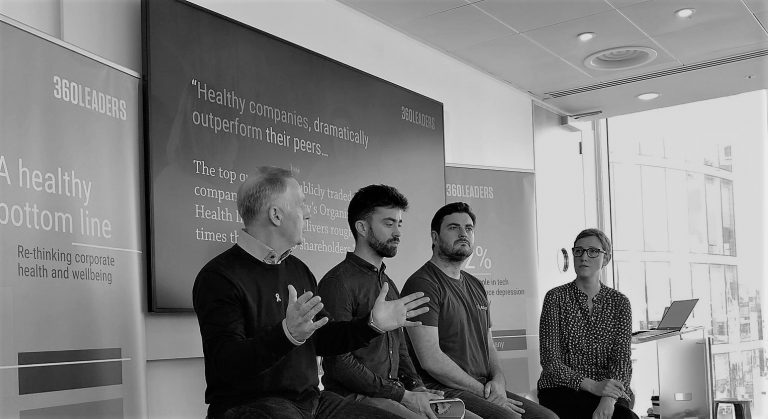Over the past decade, the position of CMO has gained greater responsibility; tasked with facilitating growth and lavished with enormous budgets to deliver it. What has emerged, however, is that equal importance must be placed on reducing customer churn as increasing market share. This holds true in both Enterprise Software companies (B2B) and Consumer products and services (B2C/D2C).
In reaction to this, the role of Customer Success was created and has become a critical leadership hire – to prioritise customer engagement, enhance customer experience and drive repeat business, renewals and some semblance of loyalty.
Software as a Service (SaaS) companies because of the very nature of their short-term contracts, as opposed to the perpetual licenses which bankrolled the growth of the ERP & CRM Mega Vendors in the ’90s, have championed the critical importance of Customer Success.
But what specific advantage does a dedicated Customer Success team bring and why are they necessary when you already have a strong sales and implementation function? What also are the core responsibilities of a CS leader?
The creation of Customer Success represents an opportunity to change core organisational structures within a company. If sales can focus on new customer acquisition, then Customer Success can focus on driving product adoption throughout a customer; increasing the likelihood of renewals, consolidating revenue and building longer-term, mutually beneficial relationships.
Inception churn – Sales vs Success
In SaaS companies, the Sales function is driven and incentivised by booking new business. They have little concern whether that client will ever renew or even if the implementation can and will be successful. While this isn’t smart sales, it does provide instantaneous revenue numbers, but smart SaaS companies do not want that kind of business. Rarely does short-term revenue outweigh the cost of sale and accompanying delivery and administrative costs, so it is far better to focus on bringing in renewable revenue. Since whoever leads the Customer Success team is measured on gross churn, they have a strong need to call sales out and put processes in place to prevent inception churn.
Short term sales costs in not-so-savvy SaaS companies
Early-stage start-ups driven by short-term sales, do so to ensure the survival of the business today and fail to address the focus of tomorrow. When customers sign three-year deals, the day of reckoning is pushed far into the future, most likely beyond the lifespan of the CMO or even the CRO if they have one. However, these deals unnecessarily burn money because:
You won’t earn back your customer acquisition cost ratio (CAC).
If your CAC is 1.5 and your gross margins are 75%, then it will take you two years to breakeven on the cost of sale. If you are heavily invested in short term contracts that fail, then you may be liable to extra incurred investment costs – that you will lose and not be able to get back.
Your reputation will suffer
The world of SaaS is small, and so whatever your product, there will be a select number of companies selling something similar within your niche. Buyers will be reading the same blogs, talking to the same analysts and going to the same events, so if you burn your customers, then they are likely to share it in their networks.
Your SaaS metrics may be jeopardised
Short-term sales deals can drive up your churn rate, reduce your expansion rate, and reduce your customer lifetime value. This will put future financing in danger since projections may be inaccurate.
Cue the VP of Customer Success
Stopping inception churn in an early-stage start-up is incredibly challenging since there is a lot of pressure on attaining new sales in start-ups. But by introducing a VP of Customer Success, smart SaaS companies can become scale ready by defeating the long-term trials of sales success and creating long term growth right from the beginning.
Customer Success and Sales have a common goal to help the company to grow. And to do so effectively, you need both customer acquisition and retention. Realising that retention and acquisition are two very different jobs will help companies to solve the issues mentioned above, by providing a counterbalance to sales and holding them to account. However, Customer Success must also proactively support sales, providing market intel and insight to ensure a better understanding of each customer profile, their ongoing needs and requirements which will ultimately drive retention.
If Customer Success is indeed successful, these long-term reference clients are not only highly profitable; they impact the reputation and brand in the wider market driving in-bound interest.
When to Invest in Customer Success
It is best to hire a VP of Customer Success a year or two after Sales has sold its first deal. At this stage, SaaS companies will have lost intimacy with their customers after experiencing growth. They will have a swarm of customer issues as a result of the scale and will not be able to accelerate their rate of churn if they haven’t developed a sound Customer Success foundation. Building a customer success team will create a resource dedicated to their long-term success from the moment they become a customer and will reduce the pressure on sales teams to manage the relationship past the point of conversion.
Why the role of the VP of Customer Success is even more important now
Against the backdrop of uncertainty regarding the pandemic, capitalising on the success of existing customers makes business sense.
Since the first quarter of this year, customers across the world have increasingly panicked as their growing concerns over Coronavirus (COVID-19) have developed. While it has affected the way of life and health of millions, it has also severely impact on businesses across the world. A slowdown in both demand and a drop in long-term relationships in the interest of short-term expediency are clear symptoms that Coronavirus has infected SaaS businesses with. The NFIB Research Centre revealed that nearly 25% of small businesses claim that the coronavirus outbreak has left a negative impact resulting in slower sales.
Now more than ever will investment in the success of existing customers pay off. By turning the focus away from solely acquiring new customers, and instead, paying attention to helping customers meet their goals too, you can provide them with enough continuous value to stick around.
A recent report from Goldman Sachs said that a 2% decrease in churn could improve valuation by up to 20%. Another states that a ‘fully engaged’ customer will deliver 23% higher revenues than average, while their ‘actively disengaged’ counterparts drop 13% compared to that same average.
Short-term sales will become a hindrance to any SaaS company that does not have customer success at their heart, so investing in Customer Success while you are still able to, makes business sense. After all, it’s a win-win situation – it’s significantly more expensive to acquire new customers than focusing on retention.



